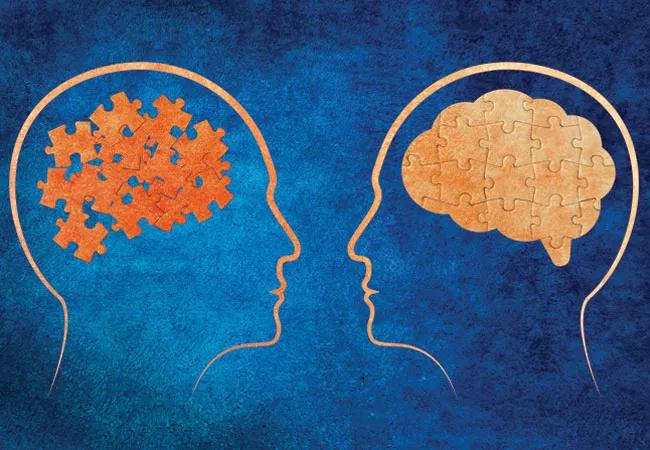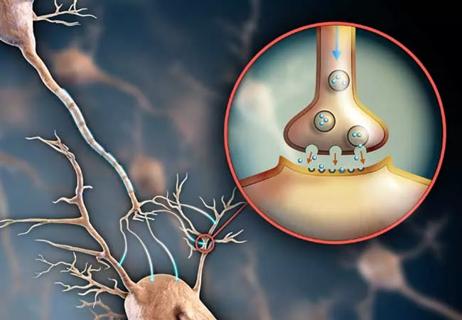Experts recommend task-focused strategy for monitoring treatment

Abbreviated from an article published in the Cleveland Clinic Journal of Medicine, July 01, 2023; Volume 90, Issue 7.
Advertisement
Cleveland Clinic is a non-profit academic medical center. Advertising on our site helps support our mission. We do not endorse non-Cleveland Clinic products or services. Policy
By Michael J. Manos, PhD and Elizabeth J. Short, PhD
Medical professionals face a significant challenge when treating adults with attention deficit hyperactivity disorder (ADHD). Although adult ADHD bears similarities to its childhood expression, the distinct features are associated with ADHD across the life span, with particular attention focused on the ADHD symptom-generated task incompletion as the single, primary dysfunction in adults with ADHD.
Shifting the paradigm of treatment from reducing symptoms to one of effectively increasing task completions allows for the physician and patient to quickly determine treatment effectiveness that accrues from pharmacotherapy. Rather than review changes in their patients’ symptoms checked off on an ADHD behavior scale, the physician can review the patient’s report on the status of incompletions (no change, increase, or decrease) and thereby play a prominent role in management of adult ADHD. This shift in the paradigm of treatment effectiveness allows the physician to reinterpret task incompletions, encourage the patient to form collaborative partnerships to enlist assistance of others to improve work completion (an effective strategy called “social scaffolding”), and objectify and name problematic effortful attention to tasks.
Further, this transforms the ADHD problem from a perspective of mental health disorder existing inside the skin to a single, functional condition occurring outside the skin, (ie, in the world of manageable action and behavior). Adopting this new paradigm in the context of medical management allows a necessary step in effective treatment plans for adults diagnosed with ADHD. We suggest herein that the medical model paradigm of reducing multiple dysfunctional symptoms be changed to the evaluation of the single behavior of task completions to address this shift in thinking.
Advertisement
We posit that task incompletion is the single most challenging problem for adults with ADHD. This functional impairment results in job changes, latency to task completion (ie, low productivity), chronic procrastination, treatment noncompliance, and disrupted relationships owing to unfulfilled expectations, among others. Physicians, for example, likely experience a higher incidence of missed appointments (broken agreements) with respect to patients with ADHD.
The estimated prevalence of current adult ADHD in the United States is 1% to 6%,1 lower than the 11% childhood prevalence identified by the US Centers for Disease Control and Prevention.2 ADHD dysfunction changes over time,3 with numerous factors impacting the age of diagnosis, including intelligence, symptom severity, environmental support, and changes in task demands. Because of increased awareness of ADHD in the adult population, physicians are likely to see more adults seeking treatment.
The expression of ADHD across the life span is variable. Thus, it is important for physicians to consider the following three factors when treating adults with ADHD:
Advertisement
Broken agreements—the central dysfunction for adults with ADHD—result from executive dysfunction and may be ameliorated via social scaffolding, wherein people establish partnerships with others to maximize agreement-keeping. Clinicians can assist their patients in a broad way to encourage and design systems that track keeping agreements.6
The question for both patients and the coaching physician is how to “clean up” broken agreements. Four simple strategies can support the patient to manage broken agreements:
All four scenarios are actionable plans that exist in the physical world. One major reason humans fail to resolve broken agreements is that their strategies for resolution are not actionable, devolving instead into self-talk that resides only in the mind (eg, “I’ll do it later”). The following are strategies for cleaning up broken agreements:
Complete agreements. Identify the “by when” of completion, then act on it. Patients can now do what they said they would do.
Make a new agreement. Sometimes, the originally designed plan to complete an agreement is no longer feasible for a variety of reasons, and the original agreement can be changed to a more actionable course.
Cancel the agreement. Another strategy to manage broken agreements is simply to take back the promise of action, that is, cancel the agreement. Cancelling agreements may be a reasonable option but not without detriment.
Advertisement
We note here that a brain with ADHD tends to be highly attuned to the physical world.7 This accentuates the practice for people with ADHD to take action in the physical world. Placing cues (eg, notes, lists, reminders) in the physical world is quite helpful for everyone, but especially for individuals with ADHD. Nevertheless, for individuals with ADHD, just knowing what to do does not ensure task execution (ie, doing it).
To facilitate agreement-keeping, physicians can encourage patients to establish a realistic plan (ie, time of completion noted). Becoming proficient in assigning a time of completion — a by-when statement — is often a difficult task for patients with ADHD and may require managed practice. An agreement without a by-when cannot be broken because it does not exist in time and may remain unfulfilled indefinitely.
The most important function of being specific about the timing of a task is that this determines clarity of results. The statement “the task will be completed by noon next Saturday” places the task in the world of recognizable behavior. When noon on Saturday comes and goes, the agreement is either kept or broken.
Incompletions with ADHD occur for a variety of reasons. First, weak activation of executive functions impairs task engagement as the person does not identify what to do, and therefore does not do it. Second, the emotional consequences associated with task incompletions (ie, angry spouse, upset boss, self-shame) cause distress and result in a negative sense-of-self that perpetuates task avoidance and more incompletions. Over time, as task demands increase in both number and complexity, incompletions mount, and a tangled web of worries and self-doubt follows.
Advertisement
One way to improve agreement-keeping across many professional settings is to use social scaffolding, a strategy often invoked in daily activity, though it is not necessarily well-researched. Instead of viewing social scaffolding as an unnecessary burden required by an incompetent individual, it can be recognized as an effective strategy designed to ensure task efficiency and task efficacy.
Adults with ADHD tend to avoid the contribution of friends and family in managing daily life (ie, social scaffolding) despite its simplicity. Resistance often stems from resentment over infantilizing, interpreting collaborative partners’ assistance as criticism, poor communication skills, unclear agreements (eg, private agreements with no consequences), and ambiguity about the roles of others in the home-work relationship.
Because little is accomplished by one person acting alone in the world today, it is critically and clinically important to encourage teamwork. Collaboration to address performance inconsistencies can reduce frustrations and character-blaming associated with incompletions. For some, social scaffolding is the optimal tool to manage ADHD behavioral shortcomings and reflects a simple addition for treatment when combined with pharmacotherapy.
Shifting the view of treatment for the adult with ADHD as a problem with the brain to a problem with behavior — breaking agreements — empowers people to view their actions differently. This shift from mental-based dysfunction to action-based dysfunction may strengthen results of treatment and make treatment simpler for the physician by making a difference in patient outcomes. Emphasizing that breaking and keeping agreements is a clinically significant side effect of ADHD and its treatment can impact the effect of pharmacotherapy.
While ADHD is a lifelong condition, it does not need to result in a demoralizing path to failure when management techniques are properly implemented.
Advertisement

Case underscores potential dangers of combining psychedelics with tranylcypromine and stimulant medications

Specialized course helps APPs navigate clinical concerns and interpersonal skills

Helping patients and providers navigate the pros and cons of common medications and nonpharmacological approaches

Program empowers Black stylists to provide emotional first aid

Study shows a growing openness to the clinical potential of psychedelic treatments

Finding changes the treatment landscape of psychiatric illness

Growing public interest in hallucinogens highlights their therapeutic promise and potential perils

Swift, aggressive thiamin therapy may be key to preventing long-term neurological injury